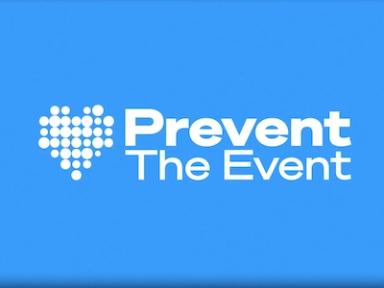
Dyslipidemia
Learn about the latest trends, discover events and innovations in the changing world of dyslipidemia disease.
Science in Dyslipidemia Disease
Get a 360º view and stay up-to-date on cardiovascular disease with content selected for you

- Dyslipidemia
Cardiovascular diseases (CVDs) are the leading cause of death globally1
According to the World Health Organization, an estimated 17.9 million people died from CVDs in 2019, representing 32% of all global deaths1. Of these deaths, 85% were due to myocardial infarction or stroke1.
A CV event is a highly traumatic experience for patients and their families2. It takes a heavy emotional toll, brings widespread disability and significantly impedes quality of life3,4.

- Dyslipidemia
Prospective evaluation of lipid management following ACS in Saudi Arabia (ACOSYM Study)

- Dyslipidemia
Acute LDL-C Reduction Post ACS: Strike Early and Strike Strong: From Evidence to Clinical Practice

- Dyslipidemia
Management of Patients With Very High Cardiovascular Risk Eligible for PCSK9 Inhibitor Treatment: 1-year Outcomes of The PERI-DYS Study

- Dyslipidemia
Prospective evaluation of lipid management following acute coronary syndrome in Saudi Arabia
Inspiration and innovation
Get inspired and stay at the forefront of innovation with the following resources

- Dyslipidemia
Cardiovascular diseases (CVDs) are the leading cause of death globally1
According to the World Health Organization, an estimated 17.9 million people died from CVDs in 2019, representing 32% of all global deaths1. Of these deaths, 85% were due to myocardial infarction or stroke1.
A CV event is a highly traumatic experience for patients and their families2. It takes a heavy emotional toll, brings widespread disability and significantly impedes quality of life3,4.

- Dyslipidemia
Prospective evaluation of lipid management following ACS in Saudi Arabia (ACOSYM Study)

- Dyslipidemia
Acute LDL-C Reduction Post ACS: Strike Early and Strike Strong: From Evidence to Clinical Practice

- Dyslipidemia
Management of Patients With Very High Cardiovascular Risk Eligible for PCSK9 Inhibitor Treatment: 1-year Outcomes of The PERI-DYS Study

- Dyslipidemia
Prospective evaluation of lipid management following acute coronary syndrome in Saudi Arabia
Events
Stay up to date and register for the latest events and view webinar recordings.



